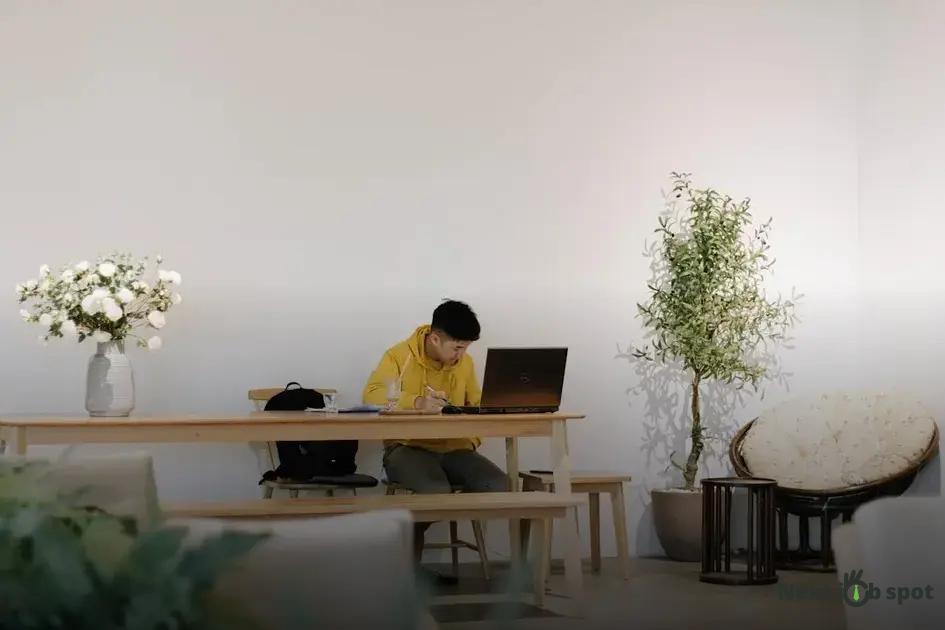Following up after an interview is crucial to demonstrate your interest and professionalism. Having the best email templates can ensure your message is clear and impactful. In this post, we cover different scenarios with suitable templates, helping you make the right impression. Explore our curated examples and elevate your post-interview communication strategy.
Thank You Email Template
After interviewing for a position, it is crucial to send a thank you email to express your gratitude. This follow-up demonstrates your professionalism and appreciation for the opportunity to meet with the interviewer.
Your email should start with a sincere thank you for the interview and the chance to learn more about the role and the company. Mention the interviewer’s name and personalize the message by referring to specific topics discussed during the interview. This not only shows that you were attentive but also reiterates your genuine interest in the position.
Here’s an example template:
Subject: Thank You – [Your Name]
Dear [Interviewer’s Name],
Thank you for taking the time to meet with me [yesterday/today]. I enjoyed our conversation about [mention specific topic] and learning more about the exciting work at [Company Name].
I am very enthusiastic about the opportunity to join your team and contribute to [mention specific project or goal]. Please let me know if there is anything else you need from me in the meantime.
Thank you once again for the opportunity.
Best regards,
[Your Name]
Sending this email promptly, ideally within 24 hours after the interview, can leave a positive impression. Ensure your language is polite and the content free from errors, which reflects well on your attention to detail and communication skills.
Checking-in Email Template

Following up after a job interview is crucial in demonstrating your ongoing interest in the position. Sometimes, sending a checking-in email can keep you top of mind for your potential employer. A well-crafted email helps you stand out without being overbearing. Here are some tips on what to include:
- Highlight your continued interest: Clearly state your excitement about the opportunity and any reasons you feel you’re a good fit.
- Inquire politely about the timeline: Ask if there’s any information about the hiring process timeline. This shows you’re eager without being pushy.
- Reiterate skill alignment: Briefly mention how your skills align with the role based on your interview conversation.
- Keep it concise: Ensure your message is short and direct to respect your recipient’s time.
Here’s a sample checking-in email template for inspiration:
Subject: Following Up on Interview – [Your Name]
Hi [Interviewer’s Name],
I hope this message finds you well. I’m writing to express my continued enthusiasm for the [Job Title] position we discussed on [Date]. I am very motivated by the prospect of joining [Company Name] and contributing to your team with my expertise in [Your Skill/Field].
I wanted to inquire if there are any updates regarding the hiring process timeline. Please let me know if there’s anything else I can provide or clarify as you continue your decision-making process.
Thank you once again for the opportunity to discuss my fit for the role. I look forward to the possibility of working together.
Best regards,
[Your Name]
Remember to tailor this template to reflect your voice and the specific nuances of your interview interaction.
Feedback Request Email Template
After attending an interview, it’s essential to know how to ask for feedback professionally and efficiently. Crafting an effective feedback request email can help you gain valuable insights and improve your future interviews.
Begin your email with a polite and appreciative tone, acknowledging the opportunity to interview for the position. You can start with a simple opening such as, “I hope this email finds you well”, followed by your gratitude for the chance to learn more about the company and the role.
Next, briefly remind the interviewer of the date or context of your interview to give them a quick reference point. For instance, “I recently had the pleasure of interviewing with you on [Date] for the [Position] role”.
Transition smoothly into your request for feedback by expressing your desire to grow and improve. Clearly state that any insights they could provide would be greatly appreciated. An example would be, “I am keen on developing my skills and would be grateful for any feedback you could provide regarding my interview performance”.
Ensure that your email is concise and to the point while being respectful of the interviewer’s time. Offer your willingness to make any improvements, and express your hope to stay in touch. You might conclude with, “Thank you once again for the opportunity to interview, and I hope to hear from you soon. Please let me know if there’s anything else you need from my side”.
End on a courteous note, reinforcing your openness to feedback and your gratitude for their consideration, using a closing such as, “Warm regards” or “Sincerely”, followed by your name.
Next Steps Email Template

After a job interview, it’s crucial to close the loop and clearly understand what comes next in the hiring process. Crafting a Next Steps Email helps with this by outlining potential timelines and expectations. When you reach out, be polite, grateful, and curious about the next steps.
Subject Line: Following Up on Next Steps After Interview
Dear [Interviewer’s Name],
I hope this message finds you well. I wanted to express my ongoing interest in the [Job Title] position following our recent interview. It was a pleasure discussing how my skills and experiences align with the goals of [Company Name].
Could you kindly provide any updates regarding the next steps in the interview process? I am keen on understanding what the timeline looks like and how I can further contribute to your team.
Thank you once again for the opportunity to interview. I look forward to your response.
Best regards,
[Your Name]
Personalizing your email by referencing specific points from your interview can make a positive impression. This approach not only demonstrates professionalism but also keeps you informed about what to expect going forward. Be concise, respectful, and appreciative throughout your communication.


